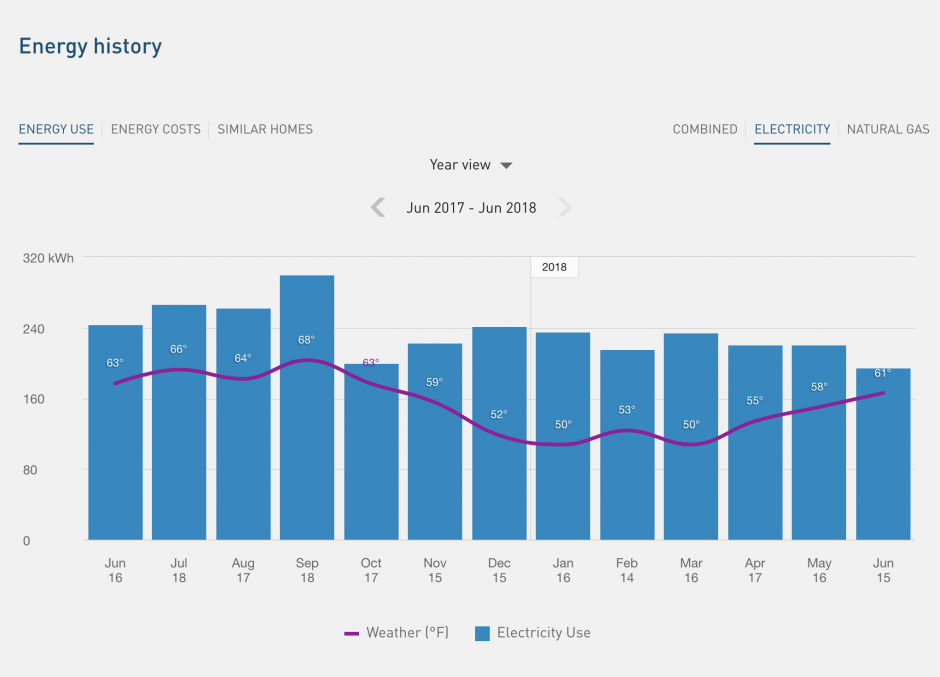In the US, the average household consumes 10,766 kilowatt hours or 897kWh a month. Louisiana is 14,881 kWh per year, Hawaii is the lowest at 6000 kWh per year.
With our 2 bed/1 bath house, we consumed 4748 kWh in 2008-2009 about 389 kWh per month. We're now at 2800 kWh for this year or 235 kWh per month, 154 kWh per month less. Daily, we use about 3kWh to 10kWh a day. Can attribute the low usage mostly because of Oakland's temperate weather and we made some energy efficient choices too over the years.
Here's a home energy checklist but for the most part this is what we did:
- efficient properly sized central A/C and heater w/ Nest thermostat
- double-pane windows (that we open when it's too hot instead of running A/C)
- insulated attic (made a huge! difference) and subfloors, we could further insulate our walls but it would be expensive to do
- strategic exterior landscaping provides shade to the house
- energy star efficient appliances: refrigerator, dishwasher, front loading washing machine (spins out excess water)
- efficient gas range and clothes dryer (gas dryer heats up and dries faster than electric, gas ranges technically aren't efficient but we have a super high btu range and convection stove so we do end up cooking a little faster)
- LED light bulbs for every light (only a couple of CFLs in the bathroom) 3-20 watts per bulb down from 60-100 watts
- efficient electronics, laptops e.g. Apple TV at .03 watts standby/5 watts on, down from DirecTV receiver's 18 watts standby/20 watts on
- NOT buying high energy use/always on products and products we don't need
The only thing left to do is to update our gas tank hot water heater to a more efficient tankless water heater but that's not going to effect our energy usage that much. Not really that big a deal.
We also could install solar panels but as I had posted before, at 235 kWh a month, solar panel installation would need to be around $5k for us to breakeven.
What's great is that we aren't compromising convenience with being energy efficient nor are we overpaying to conserve energy. It's a bit of location luck and buying ready products that are thankfully environmentally sound.


